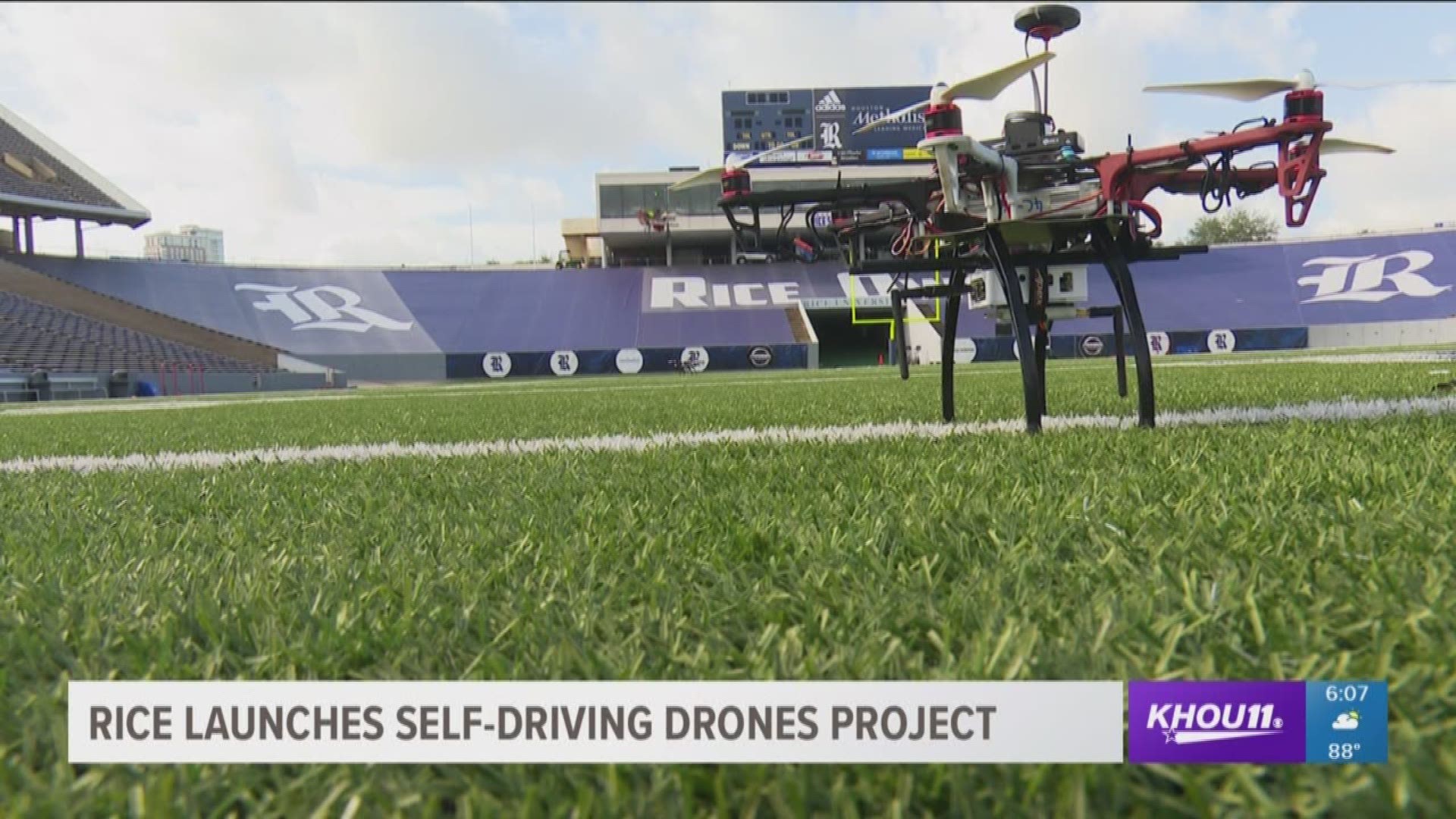HOUSTON — Imagine drones that alert you about potentially hazardous chemicals in the air.
Well they may be in our future.
Students at Rice University are working on self-flying drones that would do just that.
The engineers were awarded a $1.5 million grant from the National Science Foundation to continue developing wireless and sensing technology like these drones through project ASTRO.
On Friday, researchers at the university used the school’s stadium to fly and test the drones.
Reccardo Petrolo, a postdoctoral researcher at Rice University, hopes the drones will be able to detect things chemicals or hazardous gases in the air.
“Right now this is not really possible so our idea is to use drones that can fly around and find out what is happening,” Petrolo said.
The drones work together and exchange information about where they are and what they’re sensing.
After they’ve finished collecting data they land safely.
Petrolo said, “They are supposed to be autonomous which means that there is no need to have a human in the loop so they can be triggered for example via the Internet.”
Patrick Han, a researcher on the ASTRO project, said the drones are equipped with GPS trackers.
“This is used for a lot of missions where we want to be precise about how the drone moves in a field like an open area,” Han said.
Sensors on the ground would deploy the drones during a chemical or hazmat situation.
Petrolo said a perfect example is the fire at the Arkema plant in Crosby after Hurricane Harvey.
The drones could help first responders figure out what they’re dealing with, and pass that information along to people who may be in the area.
“The final objective of the system is to inform in real-time the neighborhoods, citizens, that are in that area on what is going on in real-time in terms of air quality, pollutants that in the air,” Petrolo said.
These engineers believe this type of sensing technology will help protect residents and improve their quality of life.
Petrolo said there’s still a lot of hurdles to overcome before project ASTRO gets off the ground, like getting approval from the Federal Aviation Administration.

